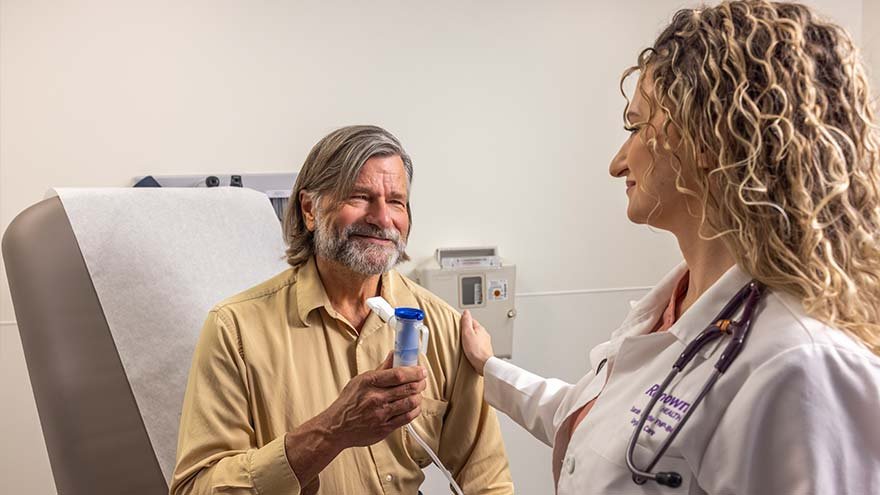

Summertime welcomes a wide variety of outdoor activities to enjoy, including swimming, hiking, exercising and more. However, did you know that urinary tract infections (UTIs) are more prevalent during the summer months—especially among women—due to several factors, including temperature, dehydration, prolonged exposure to wet clothing and an increased risk of bacteria spreading to sensitive areas?
While UTIs are common year-round, it’s important to understand what steps you can take to help minimize risk while you’re enjoying your summer. To protect yourself from painful UTIs, we spoke with Dr. Kerac Falk and Dr. Angela Dao, Urogynecologists at Renown Women’s Health, to learn more about ways to keep your summer UTI-free.
Tips for Avoiding UTIs in the Summer
- Stay hydrated throughout the day, especially if physical activity or time in the sun has increased, to help flush out bacteria from the urinary tract.
- Practice good hygiene:
- Wipe front to back after using the restroom.
- Wash before and after intercourse.
- Use hand sanitizer or wipes to cleanse your hands if you are on the go.
- Change out of tight, damp clothing and wear breathable, cotton underwear or apparel.
- Promptly changing out of wet or sweaty clothing can help minimize the risk of irritation or bacteria spreading to the urinary tract. Loose-fitting clothes allow airflow and help reduce moisture.
- Be mindful at the pool and understand your swimming risks.
- Swimming in pools, lakes and oceans can expose the urethra to bacteria and irritants like chlorine.
- Urinate after intercourse to help flush out any bacteria buildup.
Limit use of irritants that can irritate the urethra and sensitive areas, like scented products, powders or sprays, including feminine hygiene products.
When to See a Doctor for a UTI
UTI symptoms include the frequent urge to urinate, pain or discomfort during urination, lower abdominal pain, and increased or new urinary leaks. Seek medical advice from your primary care provider or urgent care if you notice any symptoms. If left untreated, UTIs can sometimes spread and become serious.
If you experience recurrent UTIs (more than two in six months), it is recommended that you consult a urogynecology specialist to discuss prevention strategies. For women after menopause, a prescription for topical vaginal estrogen is safest and most effective way to prevent UTIs, while also treating dryness, pain urgency and incontinence. If UTIs are associated with sex, an occasional low-dose antibiotic can be helpful. There are several other advanced strategies that your specialty team can utilize to prevent these infections.
At Renown Health, our doctors and care teams are here to help you feel your best year-round. Whether you’re seeking medical attention for a current infection or would like to learn more about prevention tips or receive help with recurrent UTIs, we’re here to help you achieve a healthier future.
To learn more visit, Renown Women's Health, or call 775-982-5640.
Always check with your provider before making medical decisions. This content is not a substitute for professional advice.
Related Blogs


Getting Care During The Holidays
